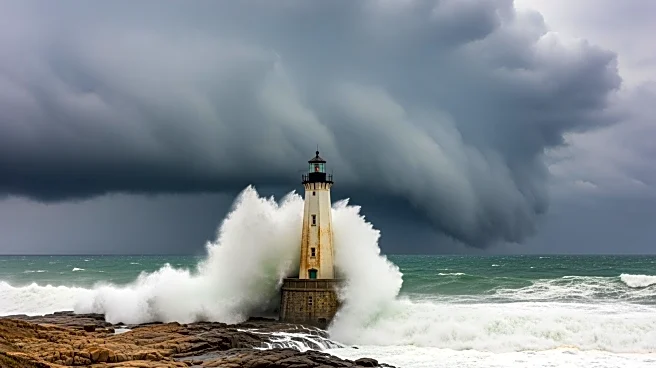What's Happening?
A tidal surge on Spain's Canary Islands has resulted in the deaths of three individuals and injuries to 15 others. The incidents occurred on the island of Tenerife, where strong waves pulled people into
the Atlantic Ocean. Emergency services reported that a man and a woman died in the municipalities of La Guancha, Puerto de la Cruz, and Santa Cruz de Tenerife. Additionally, a third man was found dead floating near a beach in Granadilla. Authorities had previously issued warnings about the tidal surge and strong winds, advising the public to avoid coastal paths and refrain from taking photos or videos of the rough seas.
Why It's Important?
The tragic events highlight the dangers posed by natural phenomena such as tidal surges, which can have devastating consequences for coastal communities. The fatalities and injuries underscore the importance of adhering to safety warnings issued by authorities during extreme weather conditions. This incident may prompt local governments to review and enhance their emergency response strategies and public awareness campaigns to better protect residents and tourists in vulnerable areas.
What's Next?
In response to the fatalities and injuries, local authorities may conduct investigations to assess the effectiveness of their warning systems and emergency protocols. There could be increased efforts to educate the public about the risks associated with tidal surges and the importance of heeding safety advisories. Additionally, infrastructure improvements along coastal areas might be considered to mitigate the impact of future tidal surges.
Beyond the Headlines
The incident raises questions about the impact of climate change on weather patterns and the frequency of extreme events like tidal surges. As global temperatures rise, coastal regions may experience more severe weather, necessitating adaptive measures to protect communities. This event could serve as a catalyst for broader discussions on climate resilience and the need for international cooperation in addressing environmental challenges.








